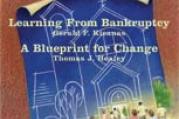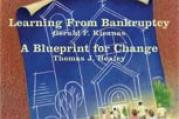Click here if you don’t see subscription options



Thinking People
You can only blame yourselves! As a Jesuit-trained scientist (Holy Cross, 1959; Ph.D. in physics from U.C.L.A., 1965), I was trained to use my Little Gray Cells (5/30) in a continual challenge of hypotheses, no matter how enticing, no matter how vigorously promulgated by respected authorities. It worked for me in a satisfying career in teaching and research at U.C.L.A., diverse foreign universities, and the University of California Davis. I taught entry-level physics for hard science majors for many years. Among the most pathetic cases I encountered were students from a conservative or evangelical background who had somehow to mesh a literal interpretation of the Bible with the overwhelming evidence of science. In many cases they resorted to God the Great Deceiver, who made the world in six days circa 5,000 years ago but imbedded in the world misleading clues about a universe 13.5 billion years old. They were not allowed to use their little gray cells in whole areas of their existence. Off limits. Do not tread there!
So are we, Catholic students and faculty together, supposed to turn off our little gray cells as we walk through the door of the church? That seems to be the desire of some in authority, but it blocks us from a more profound and holistic knowledge of our existence. One area that I would like to see examined is a discussion of the effect of science on religion. The early church adopted a literal interpretation of the Bible now rejected by science, the Catholic Church, and most mainline Christians. Thus, the human interpretations of Jesus’ message in the early church were in some respects biased by the incorrect science of the times. What would the early Fathers have concluded based on more accurate scientific knowledge? In many cases, the question is not relevant. But in a few, the impact could be significant. How would knowledge of the lack of a physical, as opposed to metaphorical, Adam and Eve have modified the thinking of St. Augustine on original sin? Could he have conceived of an all-determining original sin that cast humankind into the abyss without an original sinner?
Sticking with Genesis a bit further, the key message involves the role of free will and the ability to make choices in full knowledge of the consequences thereof, good and bad. The church has wisely said that an immortal soul, a gift of God, cannot arise from material evolution. Would our more accurate knowledge about the development of human consciousness modify how the church analyzed when that transcendental gift occurs? Could such a gift occur when a being has no ability rationally to choose good and evil with knowledge of the consequences thereof and an ability to modify behavior? How does that touch upon the role of infant baptism for a human being who has yet to be able to eat of the fruit of the Tree of Knowledge?
The church has waltzed around these questions for centuries, trying to merge our knowledge of a just and loving God with a series of mostly philosophical constructs (limbo?) designed to paper over the fundamental problems. It would be far better to address these problems head on with a bit of Catholic little gray cell thinking so that we can present a unified truth that blends science and religion in a way to attract thinking people everywhere. On most days, that includes at least some of my students.
Thomas A. Cahill







